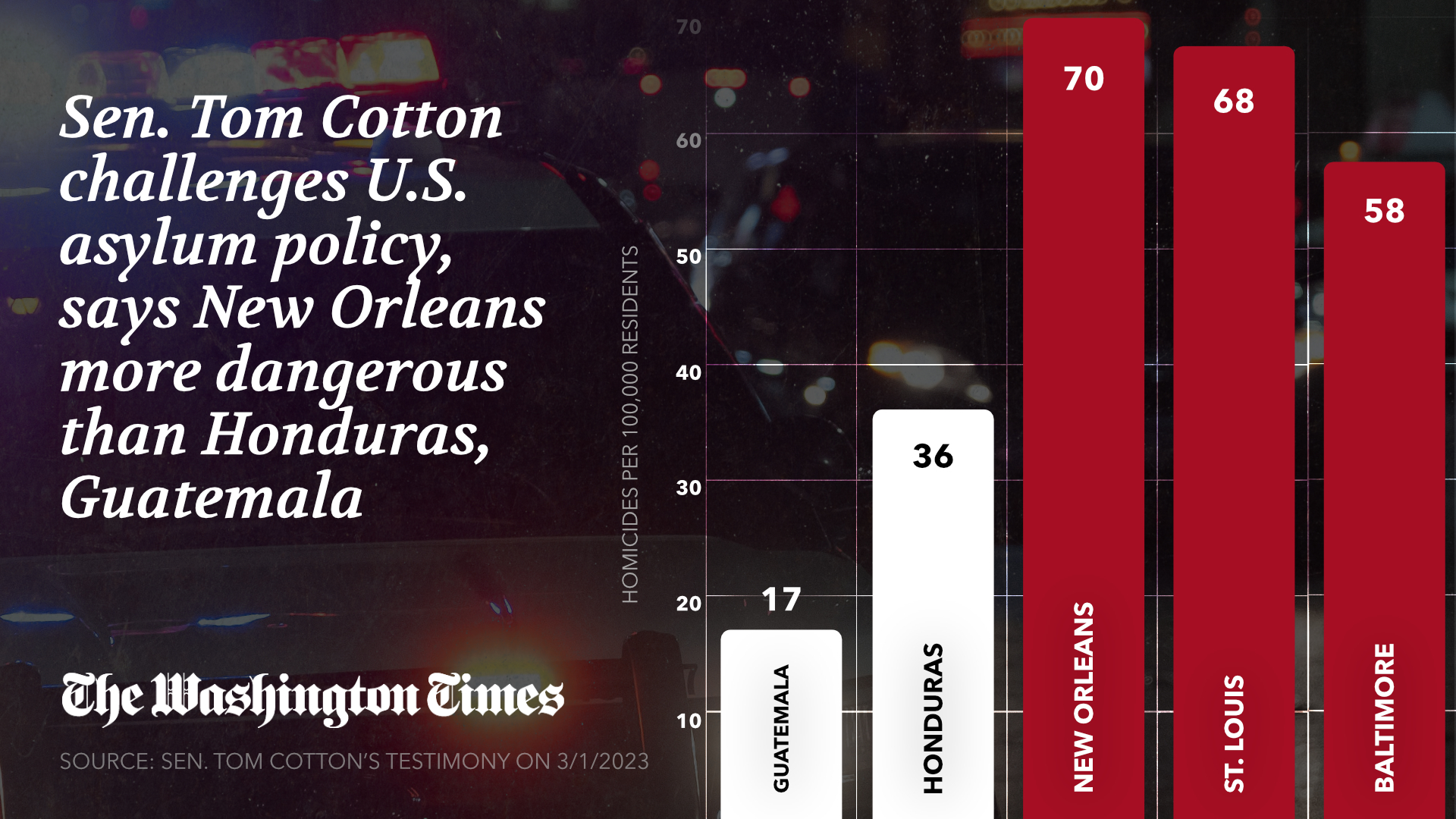Sen. Tom Cotton challenged the Biden administration’s more lenient asylum policies Wednesday, saying the U.S. is now allowing people to claim protection if they come from countries that are, on the whole, safer than some major American cities.
The Arkansas Republican prodded Attorney General Merrick Garland over the disparity at a Senate Judiciary Committee hearing, saying those relaxed asylum policies lie at the heart of the chaos that’s erupted at the southern border under President Biden.
“One of the reasons we have a crisis at our border where we have illegal aliens running to our border patrol, not away from our border patrol, is this interpretation of asylum — that anyone anywhere who lives in a dangerous or poor country can come here and seek asylum,” Mr. Cotton said.
He asked the attorney general if he knew the murder rate in Honduras. Mr. Garland responded that it was “enormously high.”
In fact, Mr. Cotton said, it’s 36 people per 100,000 residents. Guatemala’s rate is 17.
But New Orleans’ homicide rate is much higher, at 70 per 100,000 residents. St. Louis is close behind at 68 and Baltimore was 58 per 100,000.
“Should American citizens in places like New Orleans and Baltimore and St. Louis begin to seek asylum in countries like Honduras and Guatemala, under your asylum principles?” Mr. Cotton demanded.
Mr. Garland said his new asylum rules, issued in 2021, aren’t targeted at violence in general, but rather at people fleeing gang threats.
“The principle here is protection of specific individuals who are being threatened by the gang and where the local country is unwilling or unable to protect them,” he said.

He also said his asylum rules restored rules that had been in place during the Obama administration but were reversed by the Trump administration.
Asylum is the protection a foreigner can claim from within the U.S. Those seeking protection from outside the U.S. are considered refugees.
Traditionally, the status has been granted to those fleeing government persecution because of their race, religion, political beliefs or another demographic category.
In recent years that has become a broader standard to include those of any demonstrable social category, covering not just those facing government persecution but also cases where the threat is from a private actor, but the U.S. deems the foreign government isn’t doing enough to step in.
Mr. Cotton questioned the validity of that “unwilling or unable” standard.
“Is the United States government and the city governments of St. Louis and Baltimore and New Orleans, unwilling or unable to protect its own citizens?” he said.
Mr. Garland said the U.S. cities do seem willing, which he said was the difference between them and the Central American nations.
“They’re doing everything that they can we’re supporting them in every way they can,” he said.
• Stephen Dinan can be reached at sdinan@washingtontimes.com.




Please read our comment policy before commenting.